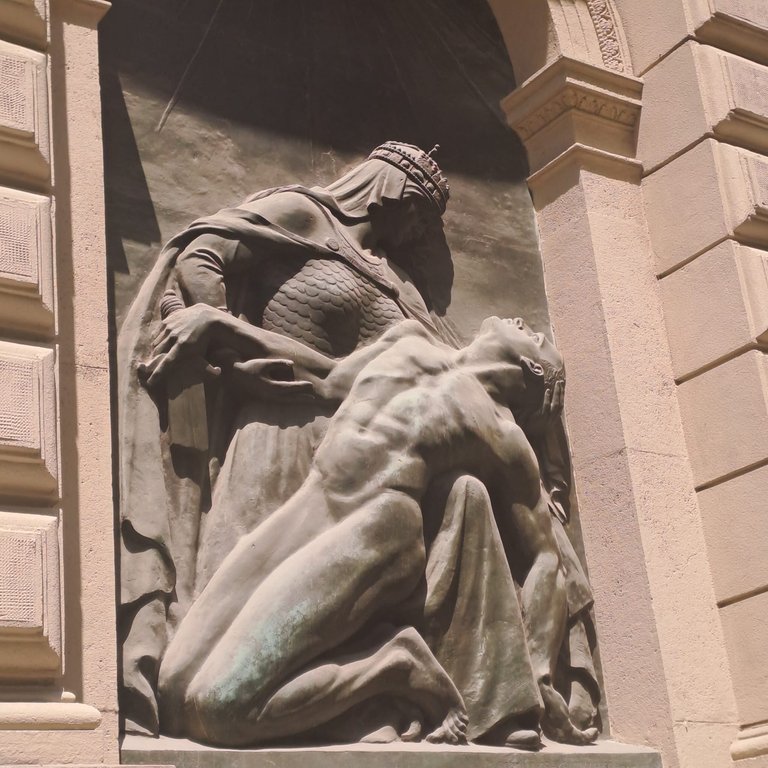In the absence of love, we become evil.
Maybe. But there's more. I used to think that's all it took. I used to think love could undo it. Now, I'm not so sure. There's a lot of specificity to love. It's not just any ordinary kind of loving, otherwise we wouldn't ask ourselves so often how someone you can love so much, so clearly is still capable of foul behavior. Now, I think a more accurate approach is,
In the absence of love at a few seemingly irrelevant, yet key moments, we become evil.

In the dawning of our lives, as humans, as peoples, as nations. It's never a question of how could someone do this. Always, always how could I do this. We all could. We're more closely pressed to evil than we like to think, because if we did, we wouldn't know to stumble into tomorrow.
I used to not understand. I used to like books that told of the existence of evil, the closer the better. I thought I was being edgy. I thought I was being young and brave, and maybe I was. Now, more and more, I'm sounding like those vanilla old-timers who used to be all
Not for me, thanks. I don't like the energy such books bring.
I was so excited when I heard Suzanne Collins had written another Hunger Games book. I happen to think they're genuinely good books. Her previous one, The Ballad of Snakes and Songbirds was, I thought, masterful. A slightly deeper dive into the human psyche than the original trilogy. What I liked best there was that in the end, the author didn't sugarcoat it. That happy ends, the bane of my existence for as long as I can remember, didn't find their way into the story. It was a book that seemed to say precisely that,
In the absence of love at a few seemingly irrelevant, yet key moments, we become evil.
And now, she wrote another one, Dawning on the Reaping, basically telling the backstory of another important character from the main story, Haymitch Abernathy. And I had no patience for it. I read it, albeit slowly. I thought, at first, it was because I'm distracted, but there's more to it than that. Throughout the book, the primary energy that resonates is evil. It's struggling to keep your head up above water in a world that hounds you and kills every last dreg of good in your world.
I found myself tired, reading. Still? Again? More? Isn't there enough fucking evil in this world right now? Isn't it abundantly obvious to anyone even vaguely awake that yes, it is possible to go through life with a soul rotten to the core, and that often, it's these people who're most equipped to do anything, everything it takes to reach power? To inflict misery on as many people as they possibly can?
If so, do I still need (or want) to read about it?
There's evil.
The book seemed to say.
So?
Once, I would've gaped. Would've thought wow, look at that. Maybe this is growing older?
I didn't like the book nearly as much as I hoped I would. I felt it was dragged out and unnecessary. I put it down this morning with a grim sense of dissatisfaction. There's evil. So?
But as I sat pondering it, another quieter, more subtle message came to me. The story of the book is a good enough exploration of how a man can become a dog. How bastards are made. How darkness wins. And yet. Yet, you know both from the epilogue and from the trilogy, which comes 25 years after, that the man comes back from being a dog.
And perhaps, that's an important message, also. Good men become evil. You could. No matter how good you are, how pure your soul and your laughter when you were little, you could. But catch it early enough, and you can also come back from it.
You can choose good, but it's got to be a choice you make every day.
Doesn't seem to me there's a message more important in our world, particularly now.

